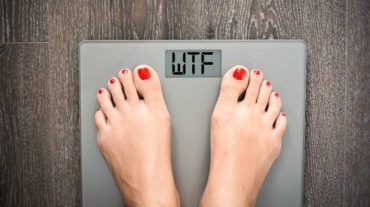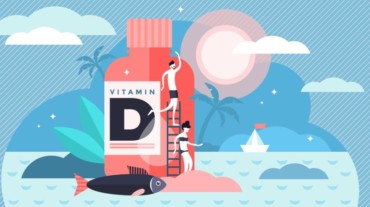
In our newfound obsession with fitness, everyone is ready to go to any length to lose weight. While eating clean, home-cooked meals and a consistent exercise routine of 30-45 minutes (three to five days a week) can promise long-lasting effects—sometimes, the results you’re expecting simply fail to show up. Even if you’ve been playing by the rules.
Now, if you’ve been stuck in this situation, where nothing seems to be shrinking that waist or booty, you’ve got to introspect more deeply instead of jumping on to a fad diet.
What introspection, you wonder?
Well, we got in touch with Avni Kaul, nutritionist, wellness coach, and founder of NutriActivania, Delhi to decode the mystery behind why you’re unable to lose weight despite trying so hard. Here is what she has to say:
“One of the reasons of this problem could be that the person is eating healthy but in larger portions. Hence, meal portions need to be controlled in order to achieve results. Secondly, they could be leaving long gaps between their meals. But, most importantly they could be having a deficiency of some vitamin or mineral, like vitamin D, which could be putting their weight-loss efforts to waste.”

“Muscle and bone weakness are also indicators of a vitamin D deficiency,” she adds.
Umm…deficiency? Say what?
“The deficiency of vitamin D is an important factor here. Studies have found that when there is a sufficient level of vitamin D in your body, it is easier to lose weight,” says Kaul.
In fact, the study-in-question is published in the International Journal of Endicronology and it states: women with an adequate amount of vitamin D in their bodies experience more weight loss compared to those who were vitamin-D deficient.

Another research published in the Nutrition Journal found that increasing vitamin D’s intake led to a decrease in the body fat percentage of the participants of the study.
“This is mostly because vitamin D affects the storage and production of fats in the body,” Kaul points out.
“It impacts other hormones (such as testosterone) and neurotransmitters (serotonin) in your body,” she adds.
While testosterone is known to reduce body fat and promote weight loss by boosting your metabolism and blocking the formation of new fat cells; serotonin can decrease your appetite and calorie intake by making feel satiated for longer as well as by regulating your sleep pattern.
But, why this deficiency, bruh?
According to Kaul the deficiency of vitamin D could be attributed to several factors.
“There aren’t too many food sources of vitamin D. And even though sunlight exposure of 15-20 minutes can fulfil your vitamin D requirements, the application of sunscreens for protecting the skin from the harmful UV rays of the sun as well as of several make-up products hinder the absorption of this nutrient,” she says.
Changing lifestyles, which include odd working hours—especially during the night—and covering your body to prevent a tan while going out can also lead to lesser absorption of vitamin D from the sun.
How can you combat this problem?
For the sake of weight loss as well as for calcium absorption to ensure strong bone health and smooth-running of your other bodily functions, it is imperative to up your vitamin D intake so as to eliminate its deficiency and the several health consequences of it.
“The best and the most natural way to get vitamin D is to be in the sun for a minimum of 15-20 minutes daily. If for any reason that’s not possible, then try to include vitamin-D-rich foods such as mushrooms, egg yolks, cow/soy milk, and orange juice in your diet,” Kaul recommends.

“Fortified cereals and milk and fish are also rich sources of vitamin D,” she adds and suggests that if necessary, you can take a vitamin D supplement as well to fulfil your nutritional requirement.
Keep this in mind though…
Just like everything else in life, the role of maintaining a healthy balance is important in case of vitamin D as well. Hence, ensure that you don’t go overboard with its consumption because an excess of vitamin D can cause side-effects such as a toxic build-up of calcium in your blood, nausea, vomiting, and bone and kidney complications. So talk to your physician before taking a vitamin D supplement and remember that moderation is the key.